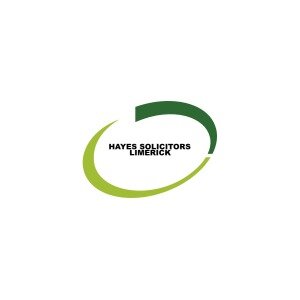Best Child Visitation Lawyers in Limerick
Share your needs with us, get contacted by law firms.
Free. Takes 2 min.
Free Guide to Hiring a Family Lawyer
List of the best lawyers in Limerick, Ireland
About Child Visitation Law in Limerick, Ireland
Child visitation law in Limerick, Ireland, governs the arrangements that allow separated or divorced parents, or in some cases other relatives, to spend time with a child. Visitation is legally known as "access" under Irish law. When parents cannot agree on access arrangements, the courts can be asked to put an order in place. The law seeks to make sure that the child's best interests are always the primary consideration. Ireland's family courts, including those in Limerick, regularly deal with access applications, aiming to ensure safe and regular contact with both parents whenever possible.
Why You May Need a Lawyer
Many people seeking child visitation rights or responding to access applications decide to consult a lawyer. Here are some common scenarios where legal advice can be invaluable:
- When parents disagree about access schedules or conditions
- If concerns arise about a child's safety during access visits
- When existing access arrangements are not being followed
- If a parent wishes to change established access due to changed circumstances
- When extended family members, like grandparents, seek access to a child
- If a parent wishes to relocate with the child, affecting access rights
- When one parent is denied any contact with the child
- To ensure any informal agreements are made legally binding
A lawyer can help explain your rights, prepare any necessary court documents, negotiate on your behalf, and represent you in court if needed.
Local Laws Overview
Child visitation in Limerick is governed by Irish national law, primarily under the Guardianship of Infants Act 1964, as amended. The law states that both parents have rights and responsibilities regarding their child, regardless of marital status. If parents cannot agree on access arrangements, the District Court in Limerick can make an order for access. The court’s paramount concern is the welfare of the child. Orders can grant unsupervised or supervised access, depending on the circumstances and any safety concerns. Both parents and certain other relatives, like grandparents, can apply for access.
Enforcement of access orders is also possible if arrangements are not respected. It is important to note that the courts encourage amicable agreements, and seeking a voluntary agreement, possibly with the help of mediation, is usually the first step.
Frequently Asked Questions
What does "access" mean in Irish law?
Access is the legal term for the right to spend time with a child, often used in the context of separated or divorced families. It is commonly referred to as visitation in other countries.
Who can apply for access in Limerick, Ireland?
Generally, parents, guardians, and in some cases relatives such as grandparents or those acting in loco parentis, can apply to the court for access.
How do I apply for a court order for access?
You can apply for an access order through your local District Court in Limerick. You will need to complete the required forms and documents. It may be helpful to consult a solicitor for guidance during this process.
What factors do courts consider when granting access?
The primary consideration is always the welfare and best interests of the child. Courts consider the relationship between the applicant and the child, the child's wishes (depending on their age and maturity), and any allegations of abuse or safety concerns.
Can access orders be changed?
Yes, if circumstances change, either parent or party with access rights may apply to the court for a variation of the access order.
What happens if an access order is not respected?
If one party does not comply with the access order, the other party may return to court to seek enforcement. The court can issue directions to ensure compliance or, in serious cases, change the order or consider penalties.
Is supervised access possible?
Yes, if the court identifies risks to the child's safety, it may order that access be supervised by a trusted adult or at a specified location, such as an access centre.
Are children required to meet with a parent if they do not want to?
Children's wishes are taken into consideration, especially as they grow older, but the final decision lies with the court, always focusing on the child's welfare.
Can I be denied access to my child?
Access is unlikely to be denied unless the court finds that it would not be in the child's best interests, such as in cases involving abuse or serious safety concerns.
Do I need a solicitor to apply for access?
While you can apply to the court yourself, known as representing yourself or being a "lay litigant," hiring a solicitor can be helpful, especially if your case is complex or contested.
Additional Resources
If you need more information or support regarding child visitation and access in Limerick, consider the following resources:
- Legal Aid Board - Provides legal aid and advice for those who qualify financially
- Citizens Information - Offers details on family law and access rights
- Family Mediation Service - Helps parents come to agreements without court
- District Court Office, Limerick - For court applications and procedural guidance
- Barnardos - Offers supports for children and families going through separation
- FLAC (Free Legal Advice Centres) - Provides free legal advice clinics
Next Steps
If you are considering seeking child visitation rights or responding to an access application in Limerick, it is wise to speak with a qualified family law solicitor. They can review your situation, explain your options, and help you decide whether mediation or formal court action is the best step. Gather any relevant documents and information about your relationship with the child and any previous agreements or court orders before your consultation. If cost is a concern, explore the Legal Aid Board to determine if you qualify for assistance. Above all, remember that the core principle in any access arrangement is the best interest of the child.
Lawzana helps you find the best lawyers and law firms in Limerick through a curated and pre-screened list of qualified legal professionals. Our platform offers rankings and detailed profiles of attorneys and law firms, allowing you to compare based on practice areas, including Child Visitation, experience, and client feedback.
Each profile includes a description of the firm's areas of practice, client reviews, team members and partners, year of establishment, spoken languages, office locations, contact information, social media presence, and any published articles or resources. Most firms on our platform speak English and are experienced in both local and international legal matters.
Get a quote from top-rated law firms in Limerick, Ireland — quickly, securely, and without unnecessary hassle.
Disclaimer:
The information provided on this page is for general informational purposes only and does not constitute legal advice. While we strive to ensure the accuracy and relevance of the content, legal information may change over time, and interpretations of the law can vary. You should always consult with a qualified legal professional for advice specific to your situation.
We disclaim all liability for actions taken or not taken based on the content of this page. If you believe any information is incorrect or outdated, please contact us, and we will review and update it where appropriate.















